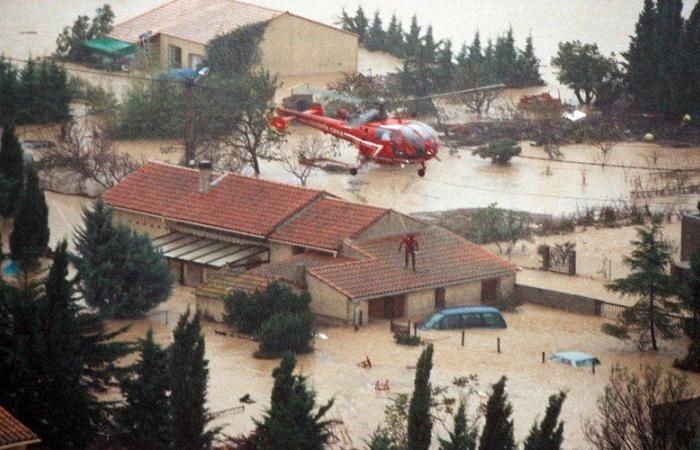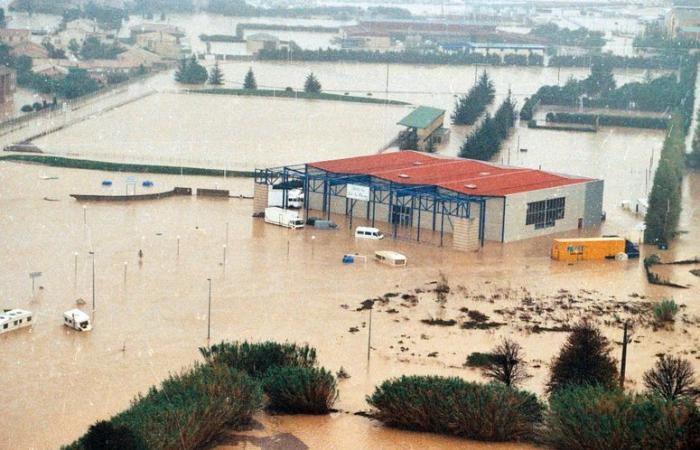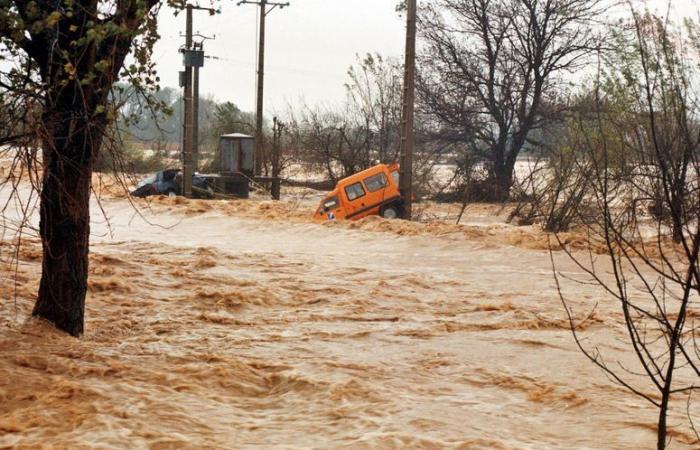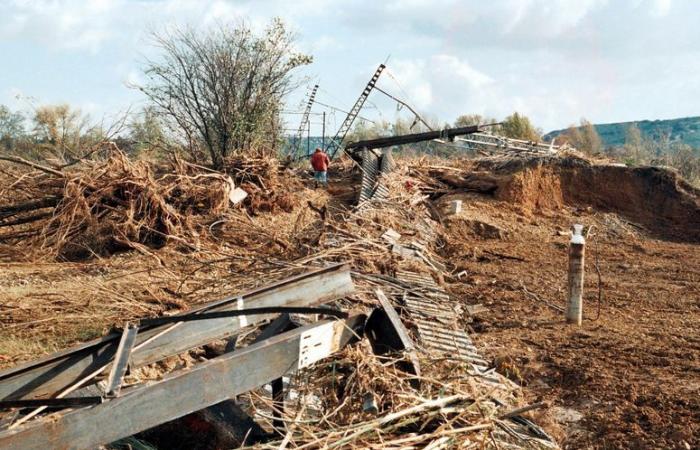He was the first magistrate of the commune of Cuxac in November 1999, when these deadly historic floods occurred in his commune. Jacques Lombard remembers these dark hours when he became aware of the scale of the catastrophe: a dramatic event which haunted him for a long time. Robert Loïs was for his part the first magistrate of Villedaigne, he also recounts these hours when his town faced an unleashing of the elements which in his eyes remains difficult to control.
Like most people on the eve of this very violent climatic phenomenon, Jacques Lombard carried out his normal activities, a thousand miles from suspecting what was going to happen less than 24 hours later. “We had a meeting to prepare for the year 2000he remembers. Around 11 p.m., it was already raining, and I received a phone call from the prefecture giving the usual recommendations in such cases. There was nothing alarming at this stage.”. The night passes, and it is around 7 a.m. that Jacques Lombard receives another call… this time from the town hall. “I had to come right away”.
The Independent – PHILIPPE LEBLANC
The councilor then discovered the water level in the village, communications cut off. “Around 8 a.m., we started to see helicopters flying over the town, but we didn’t really know what was happening”. It was only much later in the day that he learned that the earth embankments supporting the railway at the entrance to Sallèles d'Aude had given way under the force of the water, causing this devastating wave effect. for its municipality and its inhabitants.
Independant – Independant
It was when the water began to recede that we learned that there were victims.
Fortunately, the lack of communication did not prevent the intervention of the firefighters. “I tried to contact a friend, I later learned that he was on the roof of his house waiting for a helicopter“. But the hardest part was to come for Jacques Lombard. “It was when the water started to recede that we learned that there were victims. In the Garrigots district, it had risen to three meters. We did not know where the people were.”. Moments of pain that time has not erased in the mind of the former mayor.
After the mourning and reconstruction (both material and moral), came prevention. Do what is necessary to protect Cuxac from the repetition of such a meteorological outbreak. Of course Sallèles d'Aude was going to act on its side, in particular by making its famous SNCF bridge transparent. But for the chief magistrate, there was reason to do something at the level of his community. “Under the precautionary principle, quite a few areas have become uninhabitablehe specifies. However, I felt that it was also necessary to build dikes at the exit of Cuxac, on the Sallèles side.. His priority: “Protect the old village and the Garrigots”.
Completing this project will not be an easy task. “I presented the plan on TV, showing it to Gérard Holtz, but there was a lot of opposition. People were asking questions”. The works were nevertheless completed, demonstrating their relevance during the bad weather of 2018. “I think people feel reassured today, but with what is happening elsewhere… For my part, it took me 20 years to recover from November 1999. I always tell myself that it’s fortunate that that happened at night, because if it had happened during the day with children at school or young people waiting for the bus…”

Independant – Independant
At the time, I didn't know where I was anymore.
Mayor of Villedaigne in 1999, Jacques Lombard remembers being alerted to bad weather… in vain. “We were warned early, but it happened so quickly… I had never seen that. We recovered all the water from the Corbières! When such a quantity surges, what do you want to do?” The next morning, the councilor sets out to knock on the doors of his constituents to ensure that they are at least unharmed and collects their most urgent needs (“A friend went to get his 4×4 to get around more easily”) Also discovering his village devastated by water.

Independant – Independant
“When I saw the state of the commune… At the time, I no longer knew where I was. In addition, some help only came after two days, because we were not the only affected by floods, and the water was very difficult to drain. At times it went down, at others it rose again.. Robert Loïs himself lives in a flood-prone area, where the water rose up to three meters. However, there is no question of leaving Villedaigne: having become a simple resident again, he necessarily remains attached to his town, and now wants to believe it is better protected from the anger of the elements.









